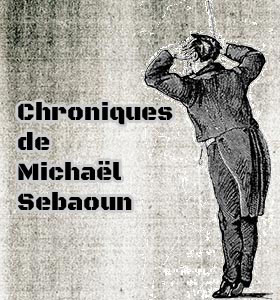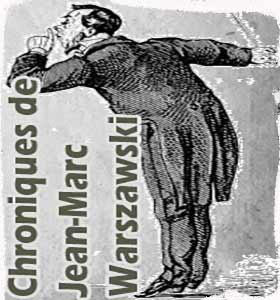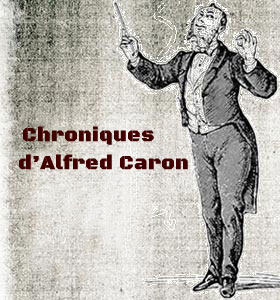Forgetting and Remembering – On Memory and Memory Cultures of Music
13.-15.11.2025, Linz
Anton Bruckner University Linz
Call for Papers
Annual Conference of the Austrian Society for Musicology 2025
“Glücklich ist, wer vergisst…“ [1], sing Rosalinde and Alfred in Die Fledermaus, and indeed in the Year of Strauss 2025 it will probably be heard from many loudspeakers and on stages in Austria—ironically in memory of the composer. Tilly889 also seeks happiness with “Songs to forget the world” in the thread she opened on a popular internet platform [2]: the motif of forgetting oneself or escaping the world in and through music could gain renewed importance in view of current crisis situations. In musicological reflection, explicit remembrance in and through music has been addressed more frequently to date [3], whether through systematic approaches, such as in the analysis of cognitive processes, or in cultural studies approaches; lived memorial practices can also be found in musical practice, e.g. at concerts or commemorative anniversary events.
Remembering is, according to Aleida Assmann, “always improbable [and requires] great efforts and special institutions and media” [4]. And so, in music too, forgetting and remembering form a referential pair in whose field of tension memory and memory cultures are formed. While forgetting is part of everyday cerebral life and can occur due to a lack of materialization, the destruction of material sources or an interrupted circulation of communication, remembering is made possible by retrieval from the storage memory, in which material and immaterial things are stored (printed music, recordings, fan shirts, written correspondence, diary entries, cult objects, instruments, newspaper articles, academic writings, but also stories, idioms, etc.).
With a view to memory and memory cultures, music-related questions arise: What and how do we remember or forget musically? What happens in the brain in the process, and what influence do emotions have on it? How can music function as a carrier of memory or how can memories be blurred by (and in) it? How and why do music-related memory communications end and how are they taken up again? According to which criteria are pieces of music with memory potential selected, preserved and processed so that they themselves do not fall victim to being forgotten?
In view of the unbroken topicality of these issues, at the annual conference of the ÖGMw 2025 we would like to examine not only institutions and media as well as the prerequisites and actions of music-related memory, but also grant musical forgetting a place in our reflections. In addition to all musicological sub-disciplines, including systematic musicology, ethnomusicology and pop music research, we also expressly invite representatives of archives and libraries as institutions involved in knowledge storage strategies to participate in the discourse.
We look forward to receiving submissions on the following music-related topics, among others, whereby both Austria-specific and worldwide contexts can be considered:
Selective memory, escapism: forgetting with music
Overlooking and forgetting: disappearing pasts
Music-related remembering/forgetting and power: marginalized memories, gender- and class-specific forgetting and remembering
usic and cognitive processes: dementia, memorizing with and through music, practicing as (physical) remembering
Affective music memory: emotion in the musical memory process; perception, evaluation and recollection
Music-related practices of remembering: sparking memories, changing memories, erasing memories
Music as a therapeutic intervention in forgetting and remembering processes
Musical politics of memory: music in discourses around ‘cultural heritage’ and as a factor in memory-related identity formation
Processing memory and transfiguration: nostalgia, revival, re-enactment in music cultures
Archiving and digitization of music-related memory carriers
Materiality of memory: presence, traces, loss of music-related objects
Musical places of remembrance
Methodological challenges in the thematic context of “Remembering and forgetting music”
Formats:
Paper: 20 minutes + 10 minutes discussion
Roundtable, panel discussions, conversation formats or short workshop (30 minutes)
Conference languages are German and English
The decision on acceptance will be made by 20.5.2025 by a jury consisting of members of the Presidium of the ÖGMw (https://oegmw.at) and the Institute for Theory and History of the Anton Bruckner University.
As part of the annual conference, the Young Musicology Symposium for students will take place again this year. You can find the call for this symposium here.
Please contact us at the above e-mail address if you have any questions.
Conception and Organization: Univ.-Prof.in Dr.in Carolin Stahrenberg, Assoz.Univ.-Prof. Dr. Georg Nicklaus, Roman Duffner, Erin Lupardus, Lukas Mantovan
Anton Bruckner Privatuniversität Linz, Alice-Harnoncourt-Platz 1, 4040 Linz ,Austria
[1] Strauss, Johann and Genée, Richard. Die Fledermaus: Operette in drei Acten. Clavierauszug für Gesang und Piano arrang. von Richard Genée. Vienna: Friedrich Schreiber, 1874, P. 43.
[2] Tilly889: “Lieder um die Welt zu vergessen? Am liebsten englisch und traurig kennt jemand was?” (21.2.2023). Philipp Graf Montgelas/Michael Amtmann: gutefrage.net, Munich 2023, (Accessed 12.1.2025).
[3] e.g., Unseld, Melanie. “Erinnerung und Gedächtnis. Einige Vorüberlegungen”. In: Biographie und Musikgeschichte, 3, P. 39–68. Cologne: Böhlau, 2014; Nieper, Lena and Julian Schmitz (Ed.). Musik als Medium der Erinnerung: Gedächtnis – Geschichte – Gegenwart. Bielefeld: Transcript, 2016; Istvandity, Lauren. “If I Ever Hear It, It Takes Me Straight Back There: Music, Autobiographical Memory, Space and Place”. In: A Cultural History of Sound, Memory and the Senses. Milton Park: Routledge, 2017, P. 231–44; Jost, Christofer and Sebald, Gerd (Ed.). Musik – Kultur – Gedächtnis: Theoretische und analytische Annäherungen an ein Forschungsfeld zwischen den Disziplinen. Wiesbaden: Springer Fachmedien, 2020; Snyder, Bob. Music and Memory: An Introduction. Cambridge, Mass: MIT Press, 2000.
[4] Assmann, Aleida. Der lange Schatten der Vergangenheit. Erinnerung und Geschichtspolitik. Munich: Beck, 2006, P. 52.




 À propos - contact |
S'abonner au bulletin
| Biographies de musiciens | Encyclopédie musicale | Articles et études | La petite bibliothèque | Analyses musicales | Nouveaux livres | Nouveaux disques | Agenda | Petites annonces | Téléchargements | Presse internationale | Colloques & conférences | Collaborations éditoriales | Soutenir musicologie.org.
À propos - contact |
S'abonner au bulletin
| Biographies de musiciens | Encyclopédie musicale | Articles et études | La petite bibliothèque | Analyses musicales | Nouveaux livres | Nouveaux disques | Agenda | Petites annonces | Téléchargements | Presse internationale | Colloques & conférences | Collaborations éditoriales | Soutenir musicologie.org.
Musicologie.org, 56 rue de la Fédération, 93100 Montreuil. ☎ 06 06 61 73 41.
ISSN 2269-9910.

Mercredi 18 Juin, 2025

 18 juin 2025
18 juin 2025